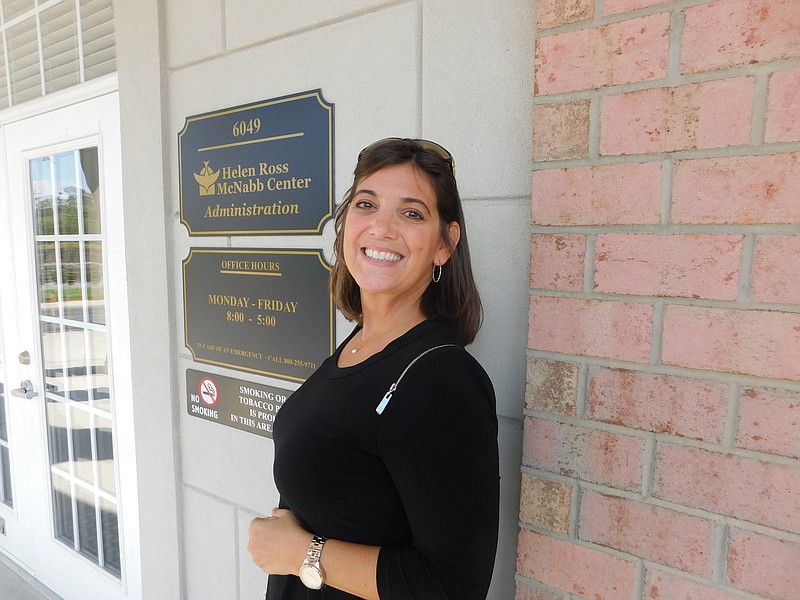Approximately 25 percent of the U.S. homeless population suffers from "severe and persistent" mental illness, yet many never have access to the stability of care they need in order to survive, according to the national Substance Abuse and Mental Health Services Administration. But for the 56 residents cared for by the Helen Ross McNabb Center in one of the nonprofit's five homes across Chattanooga, there is opportunity.
The fifth of those homes, located along Bailey Avenue, was just renovated through a BlueCross BlueShield sponsorship to fix severe issues with the home and make it inhabitable for 10 now-residents.
"It wasn't just cosmetic, it needed foundation work, plumbing and electrical repair to make it a safe space for our residents to live," said Helen Ross McNabb Center Senior Director Gayle Lodato. "And [the residents] would otherwise be homeless; they have nowhere else to go. Many struggle with their daily living skills and activities. We're able to provide them structure, some oversight, and our ultimate goal is to have them be successful members of society."
Untreated mental illness costs the country at least $444 billion per year, Lodato said. Repeated jail time for minor infractions, hospitalizations for untreated problems and other societal issues are often symptomatic of a larger issue, she explained.
"When that happens, it crowds those spaces ... and it costs us as a society a lot," said Lodato. "Jail isn't really where they belong. With the proper support, we can make sure they have their medication, we can get them to other medical providers aside from the hospital for minor issues.
"It's quite common for individuals with mental illness to have limited resources."
An estimated 40 percent of adults with serious mental illness are arrested for petty crimes such as loitering, something which could be solved if an individual regularly received needed medications as well as three meals a day and the assurance of adequate shelter, she said.
"Once these basic needs are met, we can help them progress to be the best they can be," she said. "Having a home when other resources close at the end of the day - a permanent home, not a transitional one - is so important."
Individuals at the homes sign a lease, have a roommate, do daily chores and have access to transportation for both medical appointments and group outings. And each resident is guaranteed a spot for as long as they need it, whether they are capable of graduating into the center's individual housing or living with a family member, or wish to remain for the rest of their lives.
"Our longest resident has been here 17 years, and we're fine with him staying here another 17 years," Lodato said. "Our ultimate goal is off the streets, out of the hospitals and out of the jail. We just want to walk alongside of them for their journey."
For more information on the Helen Ross McNabb Center and its wide array of services, visit mcnabbcenter.org or call 1-800-255-9711.
